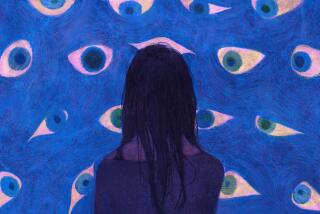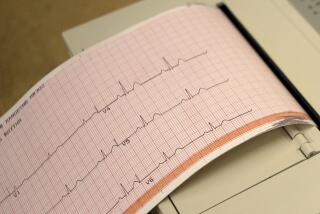Web Surfing May Fuel Exotic Self-Diagnoses
- Share via
Ah, the Internet. We marvel at its impact on everyday life. But what about health? Specifically, does it help or harm everyday folks who use it--minus a doctor--to diagnose disease?
The question is touchy, to say the least. For many patients, the mere idea that they might be better off sans Internet makes their blood boil. Part of the reason is history. Not long ago, medical knowledge was doctors’ private turf. Walk into a hospital library to consult a journal or reference book, and at best you got a frosty look. Sometimes you got the heave-ho.
But today the old boys’ club in medicine is a thing of the past, and so is the profession’s lock on medical knowledge. The pendulum has swung--maybe too far.
In the Internet age, most of us suffer from data overload, and a few of us have become--quite frankly--information addicts. At the same time, the playing field has been leveled between doctors and patients. From patients’ perspective, it’s win-win. Doctors agree, while whispering “caveat emptor” (buyer, beware) under our breath.
It’s not just quality of facts we worry about, although that’s a real concern. Ask any health care professional: Medical information has its price. As rookies, we all imagined we had at least one dread disease--especially after reading textbooks late at night. Stretched out in the dark, finally ready to rest, those conjurings introduced many a medical or nursing student to a new condition: insomnia.
*
Today, any Internet sleuth can enjoy the same fate. Take “Arthur,” for example. He was a gangly, likable college kid majoring in business. Twice in one year he suffered fever, a sore throat and crusty arm ulcers. Although each time he received antibiotics and recovered, he wasn’t satisfied. He began researching his illness on the Internet.
First, Arthur was sure he had been bitten by brown recluse spiders. This thought alone kept him up at night, ever watchful for a third attack. Chronic worry also cost him 20 pounds, his libido and his grades. He began making the rounds of doctors. Arthur found me because I specialize in exotic diseases. One look down his maw told me he didn’t have one. His tonsils were glistening golf balls that kissed at the midline. Arthur’s problem was a classic adolescent woe--Group A Strep infection of the throat and skin.
But despite the evidence for chronic tonsillitis that greeted him daily in his bathroom mirror, Arthur couldn’t stop trawling the Internet for alternate diagnoses. Three months later, it was Lyme disease. Six months later, it was leprosy. With each new ailment, I restated my opinion. Arthur listened and nodded. Still he battled his own worst enemy--his obsessive curiosity. After a year’s needless angst, Arthur asked to see a surgeon who could perform his long-overdue tonsillectomy. Praise God he finally saw the light.
*
One woman requesting an appointment was more typical; I’ll call her “Gladys.” Like many medical information junkies, she simply changed doctors when one after another failed to confirm her personal diagnosis.
Gladys’ story started with a skin rash one year after vacationing in Costa Rica. The possibilities were endless, from a simple flu to a drug reaction. But she believed she had onchocerciasis, an African parasite also found in scattered pockets of Latin America.
Let’s face it, onchocerciasis is not a name that rolls off the tongue. Nor is it a disease familiar to 99.9% of Americans--lay or professional. This time I did some sleuthing of my own. Sure enough, Costa Rica has no onchocerciasis. But by the time I shared the good news with Gladys, her dark seed of fear had already germinated. From a week’s worth of telephone updates from Gladys I know she visited three doctors and two emergency rooms requesting treatment for onchocerciasis. But that’s all I know, because--in the end--she canceled her appointment with me.
Patients like Gladys and Arthur are nothing new. Hysterical or hypochondriac, old-time docs might have labeled them. Of course, the Internet is not truly to blame for their problems. Today it’s just the perfect high-speed conduit of facts--some relevant, some not--to fuel their anxieties and imaginings.
For people with established diagnoses, Internet databases and chat rooms are a godsend. But for self-diagnosis, I must confess I’m dubious. First do no harm, Hippocrates taught. Flawed diagnoses off the Internet do harm--to patients, families and the health care system. Especially when Web medics are vulnerable from the start because they lack one crucial backup: a solid doctor-patient relationship.
*
Claire Panosian Dunavan is an internal medicine and infectious diseases specialist practicing at UCLA Medical Center. She can be reached at drclairep@aol.com. The Doctor Files runs the fourth Monday of every month.






